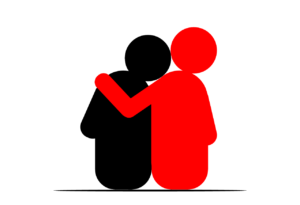 For a number of years after my mother died I found myself dreading the winter holiday season. When I was growing up, the “Christmas” season at my house was always a big deal so I had many warm and nurturing memories of that time of year. Then when my mother was gone , my instinct was to avoid all reminders of the season…including all the festive decorations and allusions to “The most wonderful time of the year” I wanted to escape and go “numb” Unfortunately, “going numb” was exactly what happened. I discovered that when I shut down feelings of grief and loss, I also shut down the possibility of feeling anything at all. I began to feel empty and lonely. Eventually I dealt with my grief, and I “reimagined” the holiday season.
For a number of years after my mother died I found myself dreading the winter holiday season. When I was growing up, the “Christmas” season at my house was always a big deal so I had many warm and nurturing memories of that time of year. Then when my mother was gone , my instinct was to avoid all reminders of the season…including all the festive decorations and allusions to “The most wonderful time of the year” I wanted to escape and go “numb” Unfortunately, “going numb” was exactly what happened. I discovered that when I shut down feelings of grief and loss, I also shut down the possibility of feeling anything at all. I began to feel empty and lonely. Eventually I dealt with my grief, and I “reimagined” the holiday season.
As the holidays approach in the time of Covid, I’m discovering that I have similar feelings of wanting to escape…to just “go away”. I’m aware that these holidays will not be the same. There will likely be no large gatherings of friends and family, and no physical contact.
This time though, I’m making a different decision about how to handle my emotional life. I’m naming the grief and I’m feeling the grief. All feelings are allowed and acknowledged as I make plans for Zoom get togethers and “socially” distanced events. I’m gathering together and sharing pictures and memories of holiday parties from the past. Now I’m sharing my feelings and finding great comfort in the reality that I am not alone. In these uncertain times in particular…none of us are alone.
So, here is the interesting thing I’ve discovered once again. Its not the “feelings” themselves that are unbearable. Its actually the “fear” of feeling the feelings that create an anxiety that is unendingly unbearable. This is because anxiety feeds on itself…especially when feelings are repressed and avoided.
So…I invite you to welcome your feelings. Write them down, or allow them to arise in meditation. Most importantly, share them. As I discovered, escaping feelings through self- isolation never works.
The expression “what is shareable, is bearable” was never more true than it is today









